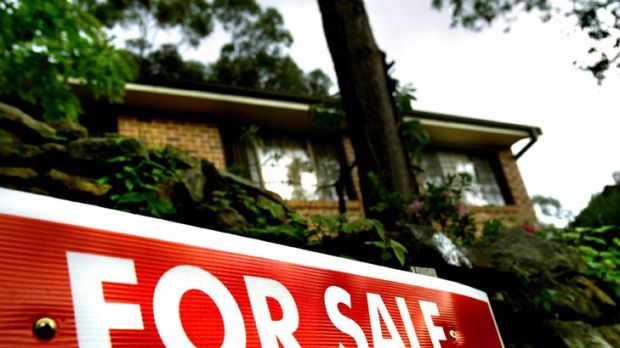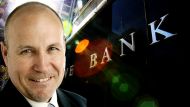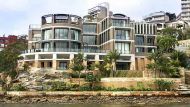After a long pause, the auctioneer commissioned to sell a Sydney beachside apartment for in excess of $800,000 puts his gavel away, unable to entice a single bid.
Across town, in the city's trendy inner western suburbs, the owner of a warehouse converted into a three-level home drops his reserve price for the property's sale. There are just two potential buyers at the auction, and they have declined to enter the kind of bidding war that has caused home prices in Sydney and Melbourne to double since 2009.
More Domain Videos
Where to invest in 2017
These property experts give us their hot tips.
The auction stand-offs may indicate that the Sydney market, which has been defined by researcher Demographia as the second most unaffordable in the world after Hong Kong, has finally hit a peak. As the buyers have drifted off, the sellers have also started to back away and the number of home listings is down 25 per cent from a year ago, according to CoreLogic RP Data.
This is all yet to show up in a decline in prices in Australia. In the nation's eight biggest cities, home prices surged a further 0.7 per cent in January even as the volume of transactions was lower. But some real estate experts and hedge fund investors say that it may be only a matter of time before prices also start to crumble.
A sharp correction would heap stress on those who have paid a high price to enter the big east coast property markets, while damaging the country's financial institutions as home loans account for up to 60 per cent of the major banks total loan books. The property sector is also a major employer and generator of demand, a particularly important pillar of the economy during a subdued period for the mining sector.
One big concern is the drop off in the number of Chinese buyers, following a crackdown by Beijing on capital outflows and Australia's tightened restrictions on lending to foreigners. Individuals taking the maximum $50,000 a year out of China now have to commit to not spending it on real estate and risk being investigated by the Chinese authorities if they break that pledge.
Chinese tour numbers halve
Hong Kong-based hedge fund manager Apt Capital Management has shorted Australian banks because of their exposure to a property market it believes is out of step with Australia's economic strength. It is forecasting a severe correction.
Apt Capital strategist Amy Reynolds said interest rate rises or a drying up of foreign investment were the most likely triggers for a future downturn in prices.

"Our models indicate that house prices would need to fall by around 30 per cent to come back into line with Australia's economic fundamentals and their own long-term averages," Reynolds said.
Esther Yong, director at Chinese language property portal AC Advertising, said the curbs on lending to foreigners and Beijing's restrictions had quelled interest, leaving only the most committed buyers.

"It's been very slow for the last two to three months," Yong told Reuters.
She said numbers on Chinese property tours - on which part of a holiday is dedicated to looking at property - are half what they were a year ago.
We think there's still a bit of steam in the Sydney market
Ausnet chief executive Paul Niardone
Australia's foreign investment rules guide overseas investors to buy new properties, such as "off-the-plan" apartments that are yet to be constructed or through sales at auctions of new homes.
At one new apartment auction on Sydney's north shore attended by Reuters, it took 50 minutes for the price to be bid up by $50,000, with two foreign investors reverting to small incremental bid rises. That sober behaviour is in contrast to the buying frenzies of the past three years that saw hopeful bidders queuing up to take part.

Among the new entrants into the market are British online realtor Purplebricks, which launched in Sydney in January, and BRICKX, which allows investors to trade small stakes in properties in well known locations, such as Bondi Beach and Port Melbourne.
The BRICKX properties advertise an estimated annual return on equity of up to 19 per cent but that would largely be reliant on the boom years repeating themselves.

"It's a guide to what has been achieved over the last five years," said BRICKX Chief Executive Anthony Millet. "Investors in this country are pretty switched on and well educated."
Still some property bulls
Not everyone is bearish.
Realtor Ausnet Financial Services, which plans a backdoor listing using the corporate shell of a dormant copper explorer, has hired six former agents from listed realtor McGrath and says it is hoping to build to a salesforce of 600 while opening a storefront on Bondi Beach. Its prospectus shows two years of losses and no forecasts.
"We think there's still a bit of steam in the Sydney market," said Ausnet chief executive Paul Niardone, a former public relations executive.
The number of sales agents vying for the business in Australia's east coast has jumped 10 per cent.
In New South Wales and Victoria, the number of homes listed for sale per registered real estate agent dropped to just under 1 property per agent in 2016 from 1.3 per agent in 2015, according to Reuters analysis of publicly available data.
If the heat continues to seep out of the market, agents will be among the first to be hit.
McGrath has suffered from the departure of about three dozen agents in recent months, resulting in an earnings downgrade and a share price tumble to about one-third its issue price almost 14 months ago.
In an explosive internal email reviewed by Reuters, which a spokesman said was authentic, McGrath founder and major shareholder John McGrath said agents who had left his firm had "no loyalty, gratitude or style and will get their just deserts when the dust settles".
Reuters

















51 comments
New User? Sign up